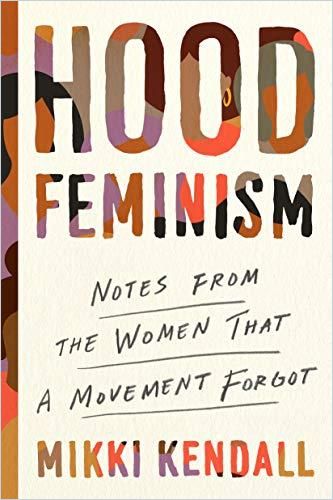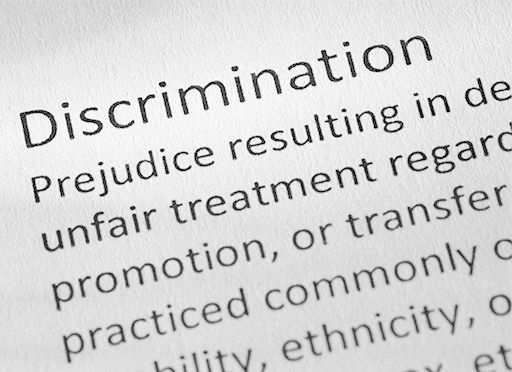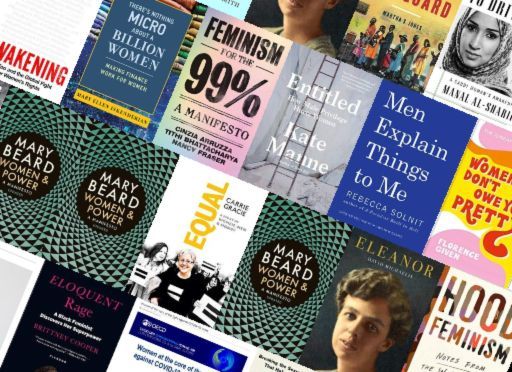Activist Mikki Kendall boldly goes where few Black women writers have gone – she exposes and then suggests how to heal the racial fault lines in American feminism.

Difficult Topics Well Raised
Inclusion
Activist and writer Mikki Kendall – who has been published in The Guardian, The Boston Globe and The Washington Post – makes a daring and timely claim: that the feminist movement isn’t always inclusive. She believes feminism focused on protecting and increasing the privileges of financially comfortable white women at the expense of women from marginalized groups. Kendall wants feminism to address all women’s larger concerns – housing, hunger, law enforcement, the minimum wage – to fulfill its liberation mission of equity and equality.
Her book is a call to action. Kendall draws on her experiences with poverty and exclusion to urge the feminist movement to combat systemic racism in the United States. USA Today, which published one of many rave reviews, characterized her book as, “A searing indictment of…the modern feminist movement’s failure to support marginalized women and to integrate issues of race, class and sexual orientation.”
Kendall incarnates a new era of expression by female authors – women of color and white women – expressing their justifiable anger and their insistence that a woman’s anger is often righteous and must not be used to marginalize her. While getAbstract is politically neutral, if Kendall’s words move or inspire you, you might also want to read Eloquent Rage by Brittney Cooper; Good and Mad by Rebecca Traister, or Angela Y. Davis’s Women, Class and Race.
Narrow feminism
White feminists, Kendall maintains, traditionally sought to protect and expand their privilege rather than advocate for the basic needs of all women, which include safe neighborhoods, a living wage, and access to housing, education and health care. Kendall further asserts that traditional white feminism demanded solidarity without heeding the needs of marginalized women. White women do suffer oppression, the author recognizes, but they still wield more power than women in other groups.
White privilege knows no gender. And while it makes no promises of a perfect life free from any hard work or strife, it does make some things easier in a society where race has always mattered.Mikki Kendall
In a scathing, but accurate and revealing accusation, Kendall holds that traditional white feminists often depend on the cheap domestic labor of women of color.
Gun violence, poverty and hunger
Throughout, Kendall offers illustrative statistics to back up her positions. Black children, she discloses, are four times likelier to be victims of gun violence than white children.
She criticizes the United States for cutting or eliminating many safety-net programs. Stingy food programs mostly harm the low-wage workers the food system relies on: migrants, grocery clerks and restaurant workers, mostly women. Kendall seeks to inspire a feminist movement that works for all of them.
Problems of patriarchy
Kendall sadly reports that 60% of Black girls under 18 face sexual abuse. She explicates a destructive phenomenon: People perceive Black girls as older than white girls the same age. This “adultification” presumes, the author reminds readers, that Black girls need less protection, support and nurturing.
Entitlement, intolerance, homophobia, misogyny, aggression and sexual violence inside and outside marginalized communities are the antisocial behaviors that patriarchal systems create.Mikki Kendall
Kendall addresses subjects that few people outside of minority communities mention. She holds that stereotypes and beauty standards based on white characteristics harm Black women. The author alludes to the destructive consequences of “colorism” – a bias for lighter skin over darker skin. Having darker skin, Kendall laments, leads to fewer jobs and promotions, fewer marriages, more arrests and longer sentences. Skin-bleaching formulas, Kendall reports, still sell well in the United States because of the success awaiting those with lighter skin. These insights may come as revelations to white readers.
Voting rights
Politicians who grasp that poverty continues over generations in the Rust Belt don’t acknowledge the same dynamics in inner-city poverty. Kendall expresses outrage that the Republican Party frames the working class as rural and white, and stokes public fears of Mexicans and Muslims. Kendall sees this issue clearly: It rests on voter suppression. Feminists, she avows, must fight to protect everyone’s right to vote.
Housing
Landlords filed four evictions per minute in 2016. Housing prices in the United States keep rising. Kendall offers statistics demonstrating that women – especially women of color – proportionally pay more for housing. Housing activists often clash with white women who advocate gentrification, such as coffee shop and boutique owners. White gentrification, the author explains, pushes out locals who can’t pay rising rents. Kendall calls on feminists to work with activists to make housing a human right.
Maternal care
Feminists support abortion care, but too often fail to support access to overall health care. Kendall notes that maternal mortality affects Black women in the United States three times more than other American women. Kendall excoriates advocates of reproductive health care for framing access as necessary for low-income groups due to their greater promiscuity or irresponsibility. Kendall writes with some bitterness that for wealthier white mothers, failing to feed their kids organic vegetables amounts to neglect. Many women of color struggle to give their children sufficient food at all.
Kendall describes classic moments of recurring racism: As a young mother, she faced criticism from pediatricians, health care workers and teachers, who were often white women. These critics, Kendall reveals, went mute when her Caucasian husband was present.
“Accomplices,” not allies
Kendall understands that people dismiss demands from angry, impolite marginalized women. But why, she asks poignantly, should women stay courteous when police murder their kids, cities poison their water and racism limits their opportunities?
Feminists must act to dismantle racism and sexism at the expense of protecting white privilege. Feminist accomplices root out white supremacy and directly confront racism.Mikki Kendall
She asserts that white feminists must be accomplices, and not merely allies, to women of color and other marginalized people.
Insightful and brave
Mikki Kendall is a fearless writer. She writes without sentiment and avoids rhetorical traps that often snare ideological authors. This is not a polemic; Kendall seeks to explain the fundamental humanity of Black and marginalized women to a more affluent white feminist audience that may be shocked by her message and reluctant to hear it. Knowing this, Kendall wisely moves between scalding accusations, heartbreaking revelations and sound suggestions for healing the rifts she describes with daring. A timely, insightful and brave book.








